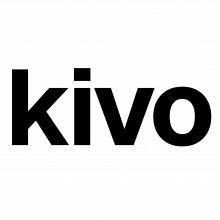
There are 18 Companies in Germany
that provide No-Code Development Services!
Germany is home to the single largest IT market in Europe, accounting for around a quarter of the European market by value. Increased business demand for smart data products and services in the cloud is driving domestic IT market growth, as Germany embarks on a far-reaching program of digitalization that promises to transform the economy.
Discover Top IT Companies in Germany specialized in No-Code Development and other related services. Find the best IT service providers for your projects.
No-Code Development is a method used in software development that allows users to create automated business operations and create applications without any programming. It uses intuitive tools and visual interfaces to make the process of app creation faster, with features like pre-made templates. A variety of services leverages No-Code Development, including business process automation, website and app development, customer engagement, project management, education & training, and e-commerce solutions.
Handpicked companies • No obligation to hire • 100% risk-free
Featured Companies in Germany
This month, the following No-Code Development companies managed to provide an outstanding service and support. It's worth taking a look.
Unlock Rapid Innovation in Design & Tech: AI-Powered Efficiency (2x), Transparent Costs, Limitless Customization!
Explore Top No-Code Development Companies in Germany
Techgropse is a leading Mobile App and Web Development Company, dedicated to turning innovative ideas into remarkable digital solutions. 500+ Clients
SaM Solutions is an international provider of IT services and software solutions with over 30 years of experience.
International award-winning agency building beautiful, interactive web experiences. We work with brands who want to push the boundaries of the web.
We are the top custom web and mobile app development company in India, the USA, the UAE, Canada, and Australia.
Musemind is a global UI UX and web design agency specializing in user UX , UI , product design, website design, branding, and SaaS.

INSAIM DESIGN Verified Company
Frankfurt am Main, Germany Head office in: Portugal
INSAIM is an AI-driven digital agency for tech companies and startups, specializing in brand identity, UX/UI, and website design and development.
We help small teams automate content creation, social media, and marketing workflows using AI—fast, reliable, and scalable.
Performance-oriented and Digitally intelligent.
Frankfurt WordPress expert transforming complex projects into high-performance solutions. 14+ years experience, 35K+ themes sold, enterprise-ready.
We are a Full-Service digital agency specializing in brand communication, design and technology.
Als Digitalagentur schaffen wir Lösungen, die dein Unternehmen voranbringen – mit Design, Webentwicklung und digitaler Strategie für messbaren Erfolg.
Europe’s top product & tech professionals on demand.
Berlin product studio for fintech, insurance, and compliance. Complex UX for loans, leasing, policy systems, and risk tools. Prototype in 7 days.
Filter No-Code Development Companies in Germany by Cities
Find the right tech company near you or from a specific city. Some of the best companies might be located in smaller cities.
Find more No-Code Development companies around the world
TechBehemoths is the world's most advanced and user-friendly platform to match IT Companies with real clients without hustle.
The German ICT Industry: Data, Companies and Predictions
Germany is home to the single largest IT market in Europe, accounting for around a quarter of the European market by value. Innovation comes as standard in an industry characterized by a thriving of small and medium-sized enterprises. Increased business demand for smart data products and services in the cloud is driving domestic IT market growth, as Germany embarks on a far-reaching program of digitalization that promises to transform the economy.
According to Payscale, the average salary of a web developer in Germany is estimated at around 3,500 EUR/mo - one of the highest in Europe, which defines the high demand on the market for digital services and products, but it also reveals the high-quality services companies based in Germany provide. According to Statista, the IT industry market in Germany is predicted to reach $75.48 billion by 2025, with IT Outsourcing dominating this market, reaching $32.15 billion. It has a CAGR for 2025-2030 of 3.33%, expecting a market volume of $88.94 billion by 2030. Germany is a leader in IT services, prioritizing innovation, and delivers high quality services.
Why Should You Work With German IT Companies?
Needless to say that the presence of tech giants in Germany, and their continuous investment in the local IT environment, is one of the basic indicators of a healthy IT industry. But, most importantly, the fundamentals of the IT industry in Germany are small and medium businesses that face tough competition, which in turn stimulates the growth and development of the entire IT ecosystem. Based on a report from the International Trade Administration, in 2025, the number of IT companies in Germany was above 100K, and Berlin only the most developed digital hub, was the home of 38K+ IT companies.
However, the main reasons for working with German IT companies remain a good business culture, rich experience, and skilled professionals.
What You Should Be Aware of When Working With a German IT Company
Despite the benefits of working with German companies, there are several factors that you should be aware of. First of all, the huge number of companies creates difficulties when choosing only one. It is possible to experience psychological fatigue due to the wide variety of good offers you may receive from German or German-based agencies. Despite these challenges, hiring a IT service provider from Germany can bring lower costs than other people expect, talented tech professionals, good education system, stable business ecosystem, productive tech experts, and attention to details.
Speaking of the differences between German and German-based IT companies, this is another challenge to make the difference in which type of company you contacted. There is a performance difference between the two types of companies mentioned above, but not always in favor of the first one.
Are German Companies Reliable?
German IT companies have probably the best reputation in Europe, especially due to the high number of projects they attract, but also based on the country’s business reputation in general. Even though more foreign companies from countries with questionable reputations relocated or declared themselves as German, the overall rating didn’t go down, but on the contrary. This may be explained by the fact that foreign companies would rather adapt to German rules and improve their reputation as well.
How the German IT Industry Relates to the Neighboring Countries
Having ¼ of the European market value, the German IT industry is considered to be the most developed, with the UK and France in second and third position, far behind it. In 2025, Germany holds approximately 19.7% of the market share, followed by the UK at 16.2% and France at 12%. Both countries have robust tech environments that dominates the European continent, with Germany that leads in high-tech industries, and the UK as a prominent tech economy.
What is No-Code Development and what are its benefits for your projects?
No-Code Development is a method used in software development that allows users to create automated business operations and create applications without any programming. It uses intuitive tools and visual interfaces to make the process of app creation faster, with features like pre-made templates. A variety of services leverages No-Code Development, including business process automation, website and app development, customer engagement, project management, education & training, and e-commerce solutions. It is also often interconnected with several services like Artificial Intelligence and Cloud Network.
According to Statista, the global low-code platform market is expected to hit approximately $65 billion by 2027. These data underline the rising demand from businesses searching for easier ways of developing apps.
By implementing a No-Code Development approach, businesses can get several perks, including:
- Accessibility for non-developers
- Cost-effectiveness
- A boost of innovations
- Flexibility and scalability
- Speed of development
To select a platform of No-Code Development services for a project, you should look into several criteria. For example, consider what your goal is with no-code tools, the operational costs, and the number of users that can access the platform. In addition, some measures should be taken into consideration:
- Security measures: The company should ensure that only authorized users can access the project. Unless the case is when the no-code project is a public web page or app.
- Controlled access administration: If the project gathers any type of data, it must have features or tools that meet the firm's data security standards and follow the regulations of data storage.
- Ease of use: Choose a platform easy to navigate for business users without help from tech support.
- Partnership support: It can be useful if you want to have multiple people collaborate on this project.
- Troubleshooting tools: Some No-Code Development platforms have debugging tools that are competitive to those used by professionals, while others don’t even have one. Without these measures, your project can not work, and you won’t understand why.
- Integration with internal data sources: Verify if the no-code platform sustains the correct APIs and data access protocols with the data of your firm.
- Ability to add code: Even though these platforms do not need code to work, if you want to expand the project’s functionality with JavaScript, API calls, and SQL statements. Make sure that the platform allows you to make these changes.
- AI tools: Leveraging AI utilities can bring many benefits, for instance, analyzing data, showing information in the native language, and communication via chatbot.
A trustworthy tech platform is TecheBehemoths, which can help you in finding the best firm for your project, providing No-Code Development services. With a large range of 100+ companies in Europe, Asia, North and South America, TechBehemoths gives fair rankings and reviews. In addition to the elaborate profiles that help to choose the right No-Code Development company. The platform has an easy-to-manage interface and strong search feature, wth the option to choose different filters, like the location, team size, hourly rate, and other preferences.
















